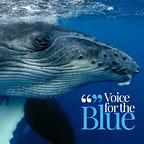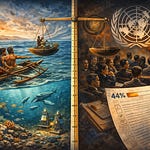On 3 October 2025, Kobe Suma SeaWorld in Japan abruptly closed its doors. A small notice cited “animal circumstances.” Twenty-four hours later, the park reopened. No explanation.
Inside, witnesses say Stella, a 38-year-old orca, repeatedly slammed herself against concrete walls, possibly trying to escape her tank. Scaffolding appeared. The company that owns the park, Granvista Hotels & Resorts, said nothing.
Stella was captured off Iceland in 1987, when she was a year old. Every orca in Japan descends from her bloodline. She has given birth, been transferred between facilities, and watched her offspring scattered across three aquariums. In the wild, orcas stay with their mothers for life. Stella’s family exists as a network of isolation tanks.
At Kobe Suma, Stella performs for crowds who can see the Pacific Ocean beyond the glass. She can hear the waves. She cannot reach them.
Reports from Life Investigation Agency and PEACE show she spends hours motionless or swimming in repetitive loops. Her daughter Ran beaches herself between shows. Both display clear signs of psychological distress.
Experts have deemed the facility fundamentally unsuitable for orcas. Pool depth, space, and acoustics fall far below welfare standards. Still, Japan’s orca industry is expanding as other nations move on. SeaWorld, Canada, and France have all ended or banned orca breeding and performances. Japan continues to build new tanks.
Even if the country banned shows tomorrow, there is nowhere for Stella to go. No orca sanctuary in the world is ready to receive her. Legislation against captivity has outpaced the infrastructure of compassion.
This is Stella’s story. A story about what happens when entertainment replaces empathy, when profit outweighs welfare, and when silence becomes policy.
The ocean is within sight. She can hear it.
She will never touch it again.
I record Voice for the Blue because ocean stories deserve to be heard. I write Ocean Rising so they land in your inbox each week, free and independent.
This is only possible thanks to a small group of paying subscribers. Their support keeps it free for students, activists and communities worldwide.
If you find value here, please consider joining them.
I’ll be back in your ears next week.
- Luke











